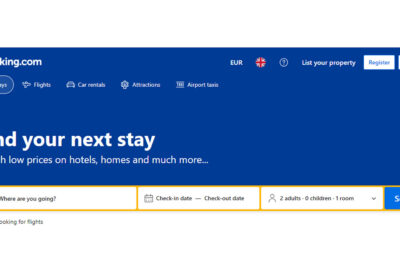In light of these developments, it is imperative for travel and hospitality professionals to stay informed and take proactive measures to protect themselves and their customers from potential repercussions stemming from the Booking.com phishing attack.
Booking.com, a leading player in the travel and hospitality industry, has officially acknowledged a recent phishing attack that has sent shockwaves through the sector. The breach, which came to light on November 12, 2023, has raised significant concerns over potential data breaches and the security of sensitive customer information.
The incident revolves around cybercriminals gaining unauthorized access to consumers’ credit card information, leaving both Booking.com and its customers grappling with the repercussions. The company’s ongoing investigation aims to shed light on the extent of the breach and identify affected individuals.
As the investigation unfolds, Booking.com is poised to adhere to legal requirements by issuing data breach notification letters to all parties affected by the security breach. In the wake of this development, it is essential for industry professionals to be vigilant and informed about the situation’s implications.
Receiving a data breach notification from Booking.com is a signal for travelers and hospitality experts to take immediate action. Understanding the potential risks and necessary precautions is paramount. Legal experts specializing in data breaches can provide valuable insights into safeguarding against fraudulent activities and identity theft. Additionally, they can advise on legal recourse in the event of a Booking.com data breach.
This cyberattack on Booking.com is a rapidly evolving situation, with more details expected to emerge in the near future. While the company has released a preliminary statement confirming the attack, it is crucial to stay informed and vigilant in light of potential developments.
According to reliable sources, the phishing attack began with a hacker assuming the identity of a traveler and sending deceptive emails to various hotels. These emails contained malicious links that, when clicked by unsuspecting hotel employees, infected the hotel’s computer systems with a virus. Once activated, this virus enabled the hackers to acquire hotels’ login credentials for Booking.com.
With these stolen credentials in hand, the cybercriminals proceeded to send counterfeit emails to travelers, posing as hotel staff members. In these deceptive emails, the hackers coerced travelers into entering their credit card information on a counterfeit Booking.com website, from which they were able to harvest sensitive financial data.
Booking.com is currently in the midst of its investigative efforts to assess the full extent of the phishing attack’s impact. Once the investigation reaches its conclusion, the company will be legally obliged to dispatch data breach notification letters to affected parties. These notifications will include detailed information about what specific data was compromised during the security breach.
Vicky is the co-founder of TravelDailyNews Media Network where she is the Editor-in Chief. She is also responsible for the daily operation and the financial policy. She holds a Bachelor's degree in Tourism Business Administration from the Technical University of Athens and a Master in Business Administration (MBA) from the University of Wales.
She has many years of both academic and industrial experience within the travel industry. She has written/edited numerous articles in various tourism magazines.





























































































































































































